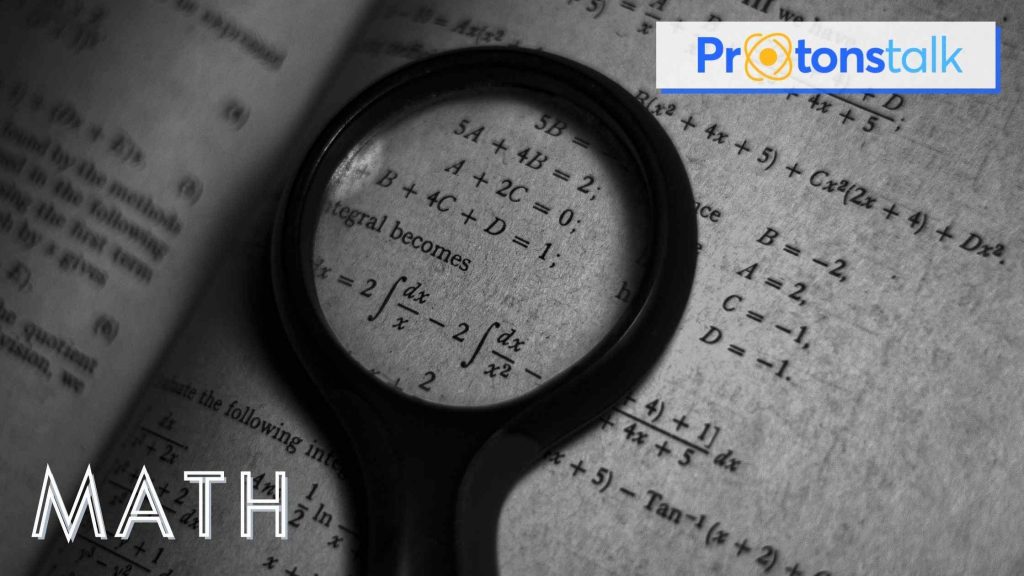
JEE is all about the right preparation of all ideas and outstanding practice, as well as speed, precision, and pressure management. To ace JEE, one must establish a balance between all of these variables.
For JEE preparation, having at least two subjects perfect is required, but having all three subjects prepared enough is also beneficial.
In general, physics is more conceptual, but chemistry always requires more learning. In JEE Mains, mathematics is mainly oriented to computations, but in JEE Advanced, it is a mix of concepts and problems.
Index
Approach to JEE Preparation (Maths)
Mathematics is extremely significant since it has less ambiguity than other subjects, and if you understand it well, it will help you achieve excellent grades.
Certain topics in mathematics are more straightforward and require less practice. Matrix, determinants, ellipse, hyperbola, 3D geometry, limits, and so on.
Mathematics is incredibly important because it has less uncertainty than other topics and can help you earn high scores if you understand it effectively.
Certain mathematical concepts are easier to grasp and require less practice. Matrix, determinants, ellipse, hyperbola, 3D geometry, limits, and so on are some of the concepts covered. A few examples include probability, permutations, and combinations, as well as straight lines:
Topics that Scares Most of the JEE Aspirants
- Permutations and combinations
- Definite integration
- Complex numbers
- Probability
- Vectors etc.
Pointers on how to approach difficult question while IIT jee preparation for mathematics
Find the right books for every unit
Because you won’t find all of the chapters in a single book, it’s preferable to get the most out of each one. Straight lines, circles, parabola, ellipse, and hyperbola are all examples of coordinate geometry. Straight lines and circles are conceptual, and they carry a significant amount of weight in JEE.
These chapters appear to be straightforward, but the questions they ask can be tough at times, and you’ll need to practice a lot of tough questions before you can ace them on the real exam. Arihant books are the best for learning coordinate geometry, thus you should get their coordinate geometry book by SK Goyal to comprehend and practice these topics.
Cengage books are also a better alternative for permutations and combinations, as well as probability and mathematics in general. These chapters contain a lot of challenging word problems that can get difficult if you haven’t practiced well. Cengage would be a superior pick for vectors as well.
Arihant by Amit M Agarwal is a wonderful pick when it comes to integral calculus. These subjects would necessitate a lot of time, patience, and practice. As a result, do a lot of issues from them and revisit these chapters more frequently. Units such as trigonometry and statistics are simpler and can be learned from either textbooks or published books.
Practice through your concepts
The above-mentioned more difficult issues require a solid comprehension of principles and, finally, much practising. Such chapters should never be left unattended. Every week or so, try to do a practise sheet of these.
Subjective questions are the greatest technique to review your concepts for these areas. You might do this by looking over old JEE papers with a lot of subjective questions. Such questions allow you to review multiple ideas in a single inquiry. To comprehend the concept application, you should start with basic theory and then do a number of solved cases. After that, practice a lot of mains level tasks before moving on to the more difficult ones. You’ll be able to do things properly this way.
Practice mock tests
The more difficult themes are frequently blended in with other topics in tests. You can get a question that includes topics from multiple chapters. As a result, you’ll need to do a lot of practice questions and mock tests. Mock tests genuinely educate you on how to deal with a variety of issues. They also educate you on how to deal with pressure during tests, which is the most crucial aspect of the exam.
Few general tips to deal with difficult mathematics topics while preparation for Jee preparation:
- Tough questions can also be solved quickly provided you understand the fundamental concepts.
- When posing a question from tough chapters, make a mental note of every minor detail before moving on. You might make calculation errors if you scribble in the rough.
- While practicing for chapters, make a mental note of any new concepts or unusual questions you come across. You should review such notes before the exam to aid with the revision of complex topics.
- Do solve the past years’ papers to get an idea of the kind of questions that can be asked in the exam. That will help you in preparing accurately.
- Don’t put off discussing the more difficult things until the last minute. Doing things near the end will cause you to fear, and you will be unable to devote adequate time to them as a result.
- During the exam also, do the tougher questions earlier.
In terms of mathematics, JEE Mains and Advanced are two different exams. The mathematics in the Mains will be extensive and practice-oriented. You will do well if you have properly practiced and know the formulas.
You’ll need a little more for JEE Advanced maths. Because the questions aren’t just formula you have to make sure you know the concept in-depth, from the very simplest to a much higher degree, you must deduce or use objects. You’ll be able to get it if you give each question enough time.
While preparing coordinate geometry, draw diagrams clearly. Make connections between probability, permutations, and combinations, and real-life events. Definite integration and complex numbers can be challenging at times, but the key is to practice and understand the principles. Best of luck to you!
